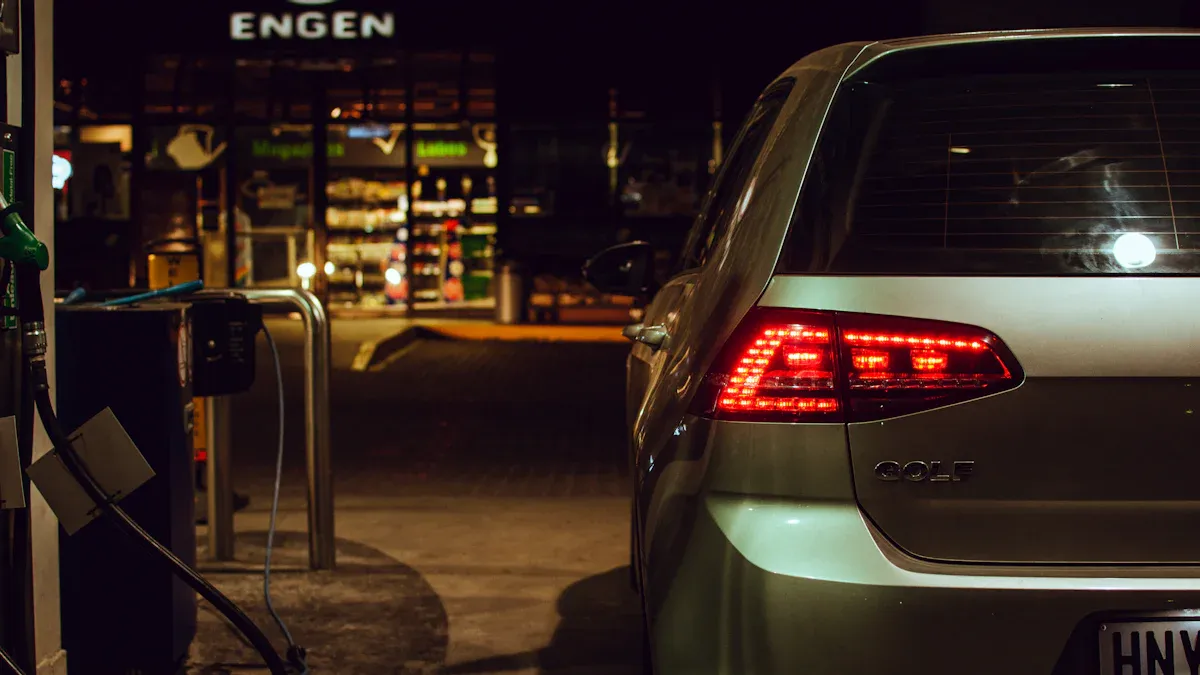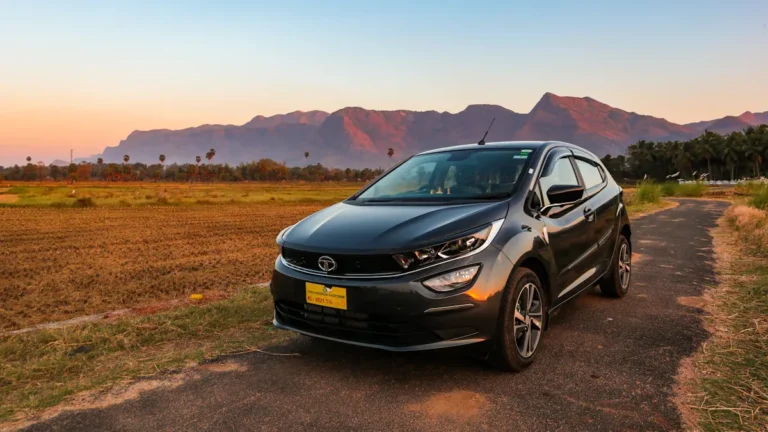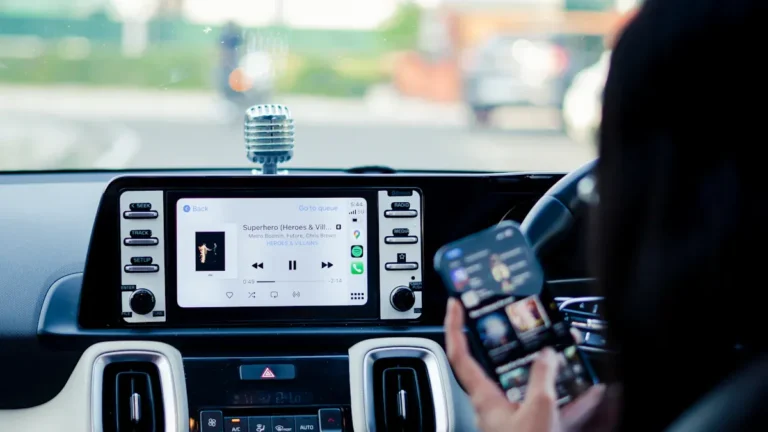Book Appointment Now
Which Volkswagen Has the Best MPG?

If you’re looking for the Volkswagen with the best MPG, the 2024 Volkswagen Jetta takes the crown, boasting an impressive 34 combined MPG. Fuel efficiency plays a crucial role in your vehicle choice, especially since about 42% of car shoppers prioritize it when deciding. Comparing different models helps you find the perfect balance between performance and economy.
Key Takeaways
The 2024 Volkswagen Jetta leads with a combined MPG of 34, making it the top choice for fuel efficiency.
Regular maintenance, like checking tire pressure and tuning the engine, can significantly improve your Volkswagen’s MPG.
Driving conditions and habits, such as avoiding aggressive driving and minimizing idling, greatly affect fuel efficiency.
Best MPG Volkswagen Models

When it comes to fuel efficiency, the Volkswagen lineup has some impressive contenders. Let’s dive into the models that stand out for their MPG ratings.
Volkswagen Jetta
The Volkswagen Jetta is a clear winner in the MPG race. With a combined rating of 34 MPG, it’s hard to beat. If you’re looking for even better numbers, the 2025 Jetta offers an EPA-estimated 29 MPG in the city and 40 MPG on the highway, giving it a combined rating of 33 MPG. Real-world tests show that the 2023 Jetta can achieve up to 54.2 MPG, surpassing the EPA’s estimate of 42 MPG for highway driving. This makes the Jetta one of the most fuel-efficient cars on the market, even outperforming some hybrids!
Volkswagen Golf
Next up is the Volkswagen Golf. This compact car offers a solid EPA-estimated fuel economy of 32 MPG combined. In city driving, you can expect around 25 MPG, while highway driving can yield up to 34 MPG. The Golf’s performance is impressive, especially considering it packs 170 horsepower. This balance of power and efficiency makes it a strong contender among compact cars. If you’re considering the sporty Golf R, it achieves 23 MPG combined with a manual transmission and 25 MPG with a DSG automatic transmission.
Volkswagen Taos
Finally, let’s talk about the Volkswagen Taos. This compact SUV has an EPA-estimated MPG of 28 in the city and 36 on the highway, resulting in a combined rating of 31 MPG. The Taos offers a great blend of space and efficiency, making it a practical choice for those who need a bit more room without sacrificing fuel economy.
Volkswagen MPG Comparison

When you’re considering a new Volkswagen, it’s essential to look at the MPG ratings across different models. Here’s a quick overview of how various Volkswagen vehicles stack up in terms of fuel efficiency:
Model | City MPG | Highway MPG | Combined MPG |
|---|---|---|---|
VW Jetta | 29 | 40 | 33 |
VW Tiguan | 23 | 30 | 25 |
VW Taos | 28 | 36 | 31 |
VW Atlas | 20 | 26 | 22 |
VW ID.4 | 115 MPGe | 98 MPGe | 107 MPGe |
VW ID. Buzz | 90 MPGe | 75 MPGe | 83 MPGe |
As you can see, the Volkswagen Jetta leads the pack with a combined MPG of 33, making it a top choice for those who prioritize fuel efficiency. The ID.4 also stands out with its impressive MPGe ratings, showcasing Volkswagen’s commitment to electric vehicles.
Performance vs. Efficiency
You might wonder how performance stacks up against efficiency in these models. Here are some key points to consider:
Turbocharged Engines: Many Volkswagen models, like the Golf, feature turbocharged engines. These engines provide a spirited driving experience while still maintaining decent MPG. However, keep in mind that turbocharged engines can lead to lower MPG during acceleration from a stop or when climbing hills due to increased power demand.
Real-World Performance: The 2018 Volkswagen Golf, for example, has an estimated EPA rating of 36 highway MPG and 25 city MPG. Its 1.8-liter turbocharged engine strikes a balance between power and fuel efficiency, making it a fun yet economical choice.
Driving Conditions Matter: Your driving habits and conditions can significantly impact your fuel efficiency. For instance, stop-and-go traffic can lower your MPG, while highway driving typically yields better results.
Factors Affecting Volkswagen MPG
When it comes to fuel efficiency, several factors can influence the MPG of your Volkswagen. Understanding these can help you make the most of your vehicle’s performance.
Engine Types
The type of engine in your Volkswagen plays a significant role in its fuel efficiency. Here’s a quick look at different engine types and how they impact MPG:
Engine Type | Description | Fuel Efficiency Impact | Models Using Engine |
|---|---|---|---|
TSI | Turbocharged Stratified Injection engines combining turbocharging and direct fuel injection. | Improved fuel efficiency for city and highway driving. | Golf, Passat, Tiguan |
TDI | Turbocharged Direct Injection diesel engines designed for high torque output. | Exceptional fuel economy, ideal for long-distance driving. | Jetta, Golf SportWagen, Touareg |
GTE | Hybrid engines combining electric motor with gasoline engine. | Eco-friendly driving with the range of traditional powertrains. | Golf GTE, Passat GTE |
GTI | Performance-oriented engines for driving enthusiasts. | Focused on performance rather than fuel efficiency. | Golf GTI, Polo GTI |
R | High-performance engines with all-wheel-drive capability. | Prioritizes performance, may impact fuel efficiency. | Golf R, Arteon R |
e-Golf | Electric motor for zero-emission driving. | Emission-free, reducing environmental impact. | e-Golf |
W Engine | Unique W-shaped cylinder layout optimizing power and efficiency. | Balances power delivery with fuel efficiency. | Phaeton |
EA888 | Advanced engine family adaptable to various vehicle types. | Combines performance and efficiency. | Golf, Passat, Tiguan |
Driving Conditions
Your driving environment can also affect your Volkswagen’s MPG. Here are some conditions to keep in mind:
Cold weather increases fuel usage as the engine works harder to maintain temperature.
Using HVAC systems reduces gas mileage.
Driving uphill increases gas consumption.
Aggressive driving can consume 50% more fuel than smooth driving.
Speeding decreases fuel efficiency.
Idling consumes fuel at a faster rate.
Maintenance Practices
Regular maintenance is key to optimizing fuel efficiency. Here are some practices you should follow:
Regularly check and replace the air filter to ensure efficient combustion.
Maintain proper tire pressure to reduce rolling resistance.
Declutter the vehicle to minimize unnecessary weight.
Use cruise control on highways to maintain a steady speed.
Limit idling to save fuel.
Keep the engine tuned for optimal performance.
By understanding these factors, you can enhance your Volkswagen’s MPG and enjoy a more economical driving experience.
In summary, the 2025 Volkswagen Jetta stands out as the model with the best MPG, achieving an EPA-estimated 29/40/33 (City/Highway/Combined). The Taos and ID.4 also offer impressive fuel efficiency, making them great options. Remember, considering MPG is crucial when choosing your next vehicle. Evaluate your needs against these ratings to find the best gas mileage for your lifestyle!
VW Model | 2025 MPG (City / Hwy / Cmb) |
|---|---|
Jetta | 29 / 40 / 33 |
Taos | 28 / 36 / 31 |
ID.4 | 115 / 98 / 107 |
ID. Buzz | 90 / 75 / 83 |
FAQ
What is the most fuel-efficient Volkswagen model?
The 2024 Volkswagen Jetta is the most fuel-efficient, achieving a combined MPG of 34.
How can I improve my Volkswagen’s MPG?
You can improve your Volkswagen’s MPG by maintaining proper tire pressure, regular engine tune-ups, and driving smoothly.
Are electric Volkswagens more efficient?
Yes, electric Volkswagens, like the ID.4, offer higher efficiency ratings, measured in MPGe, compared to traditional gasoline models.



